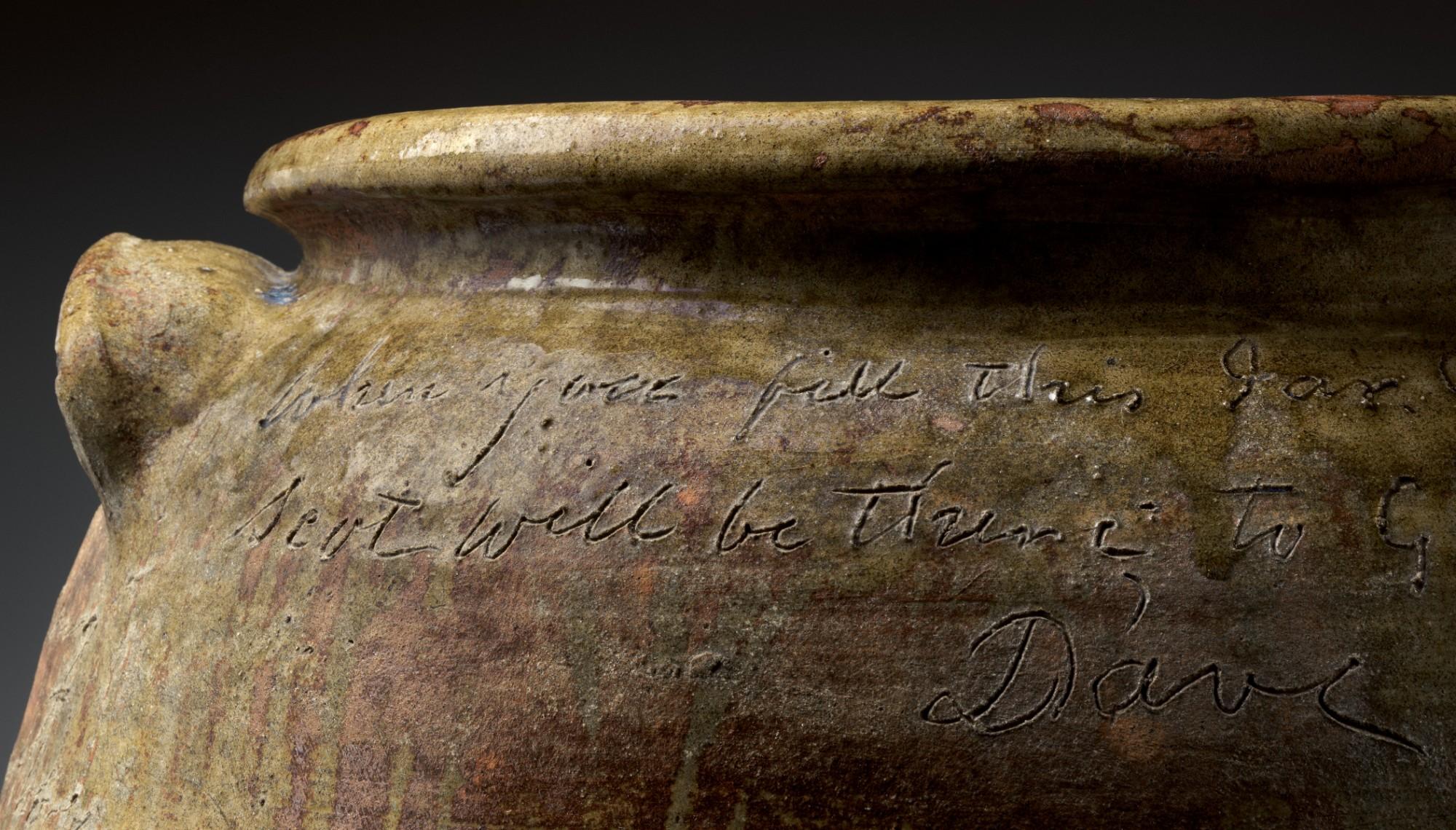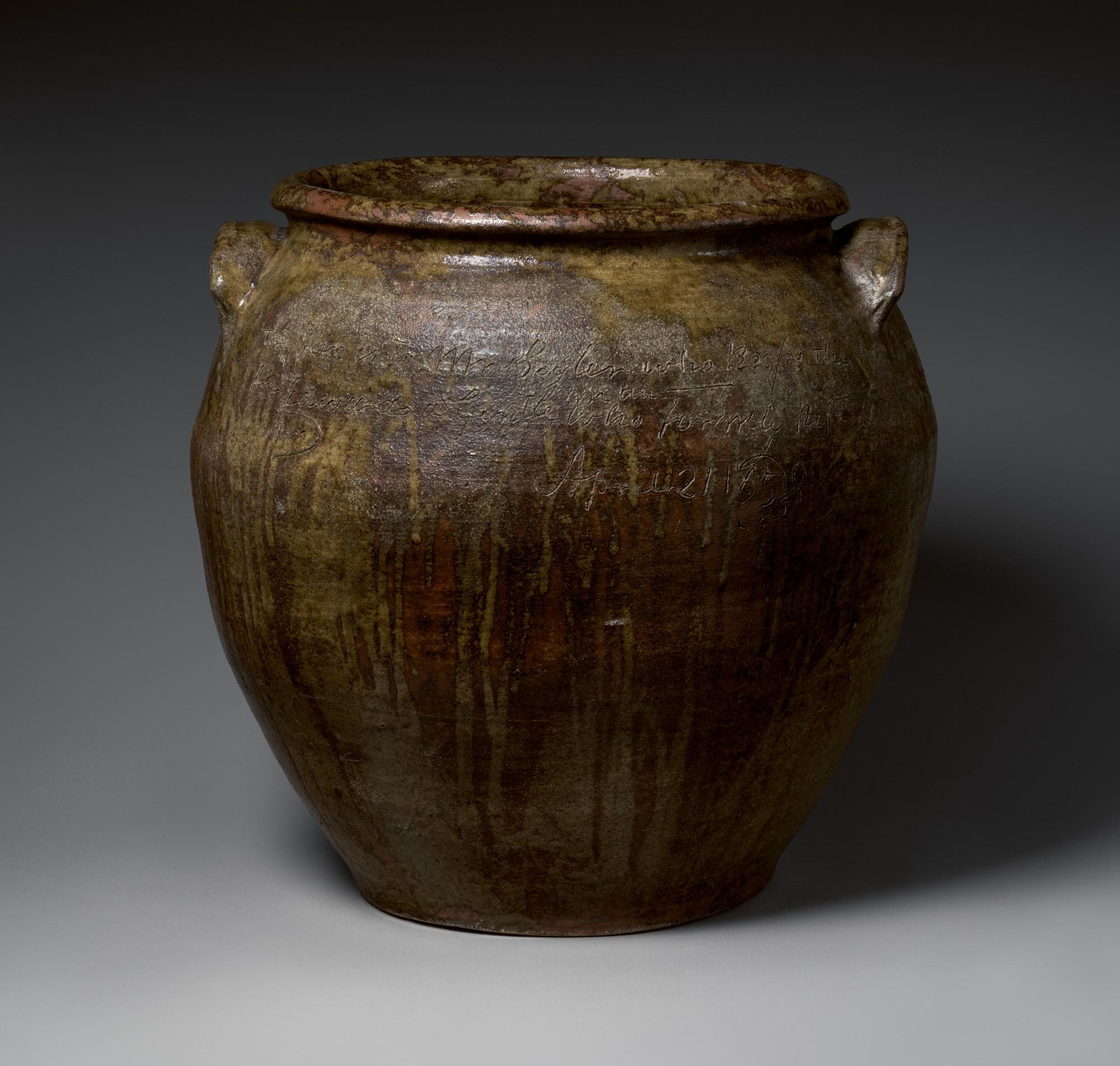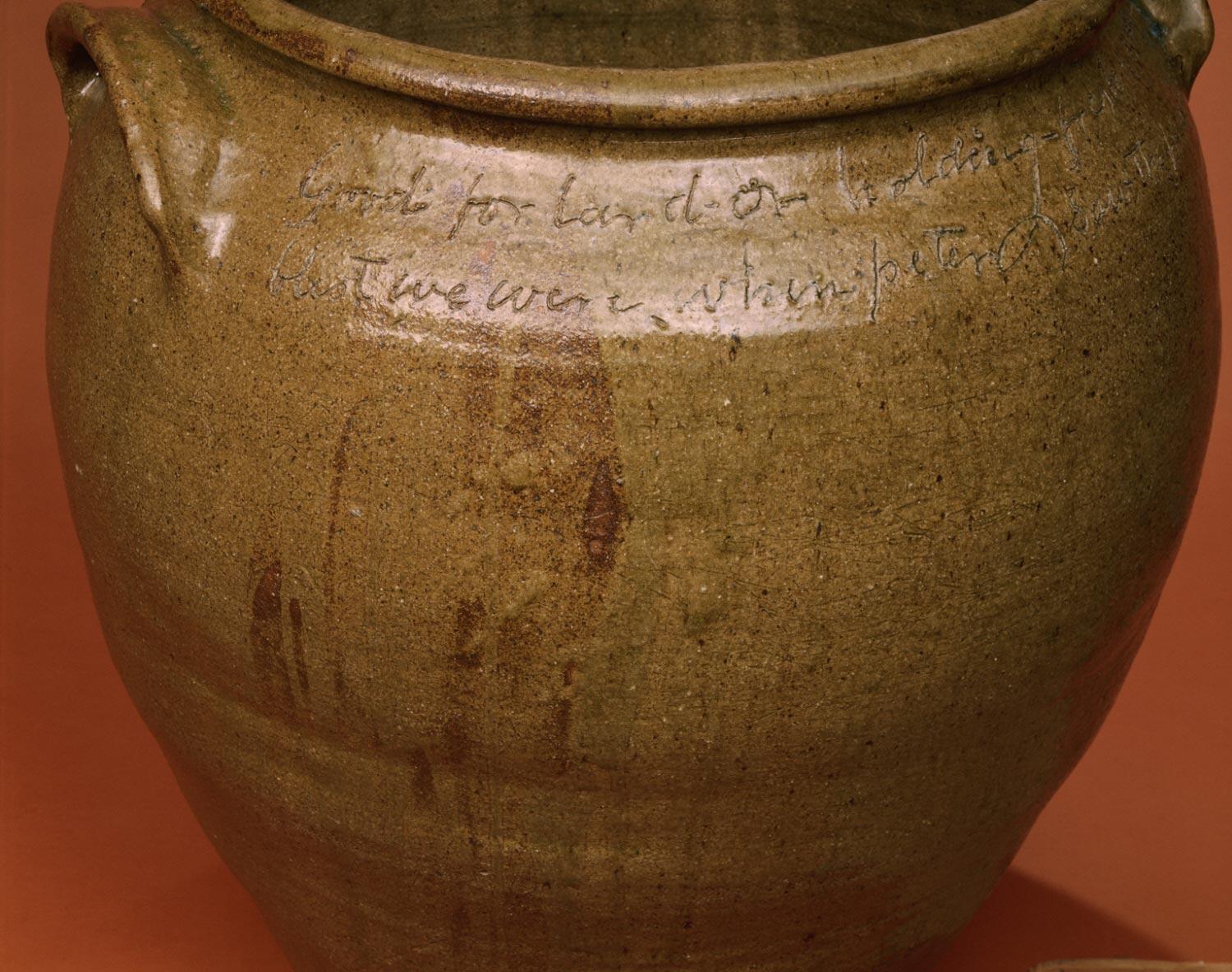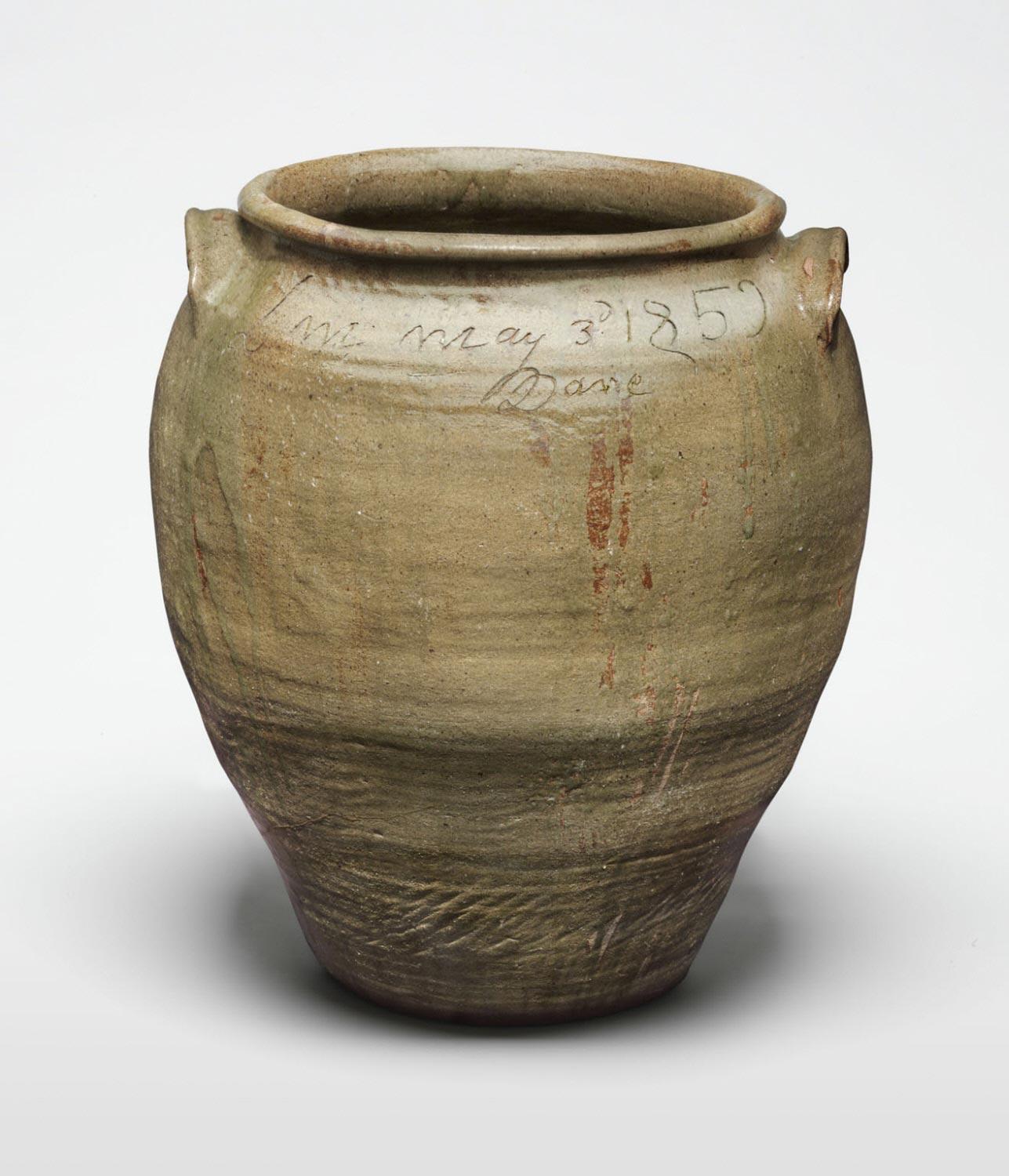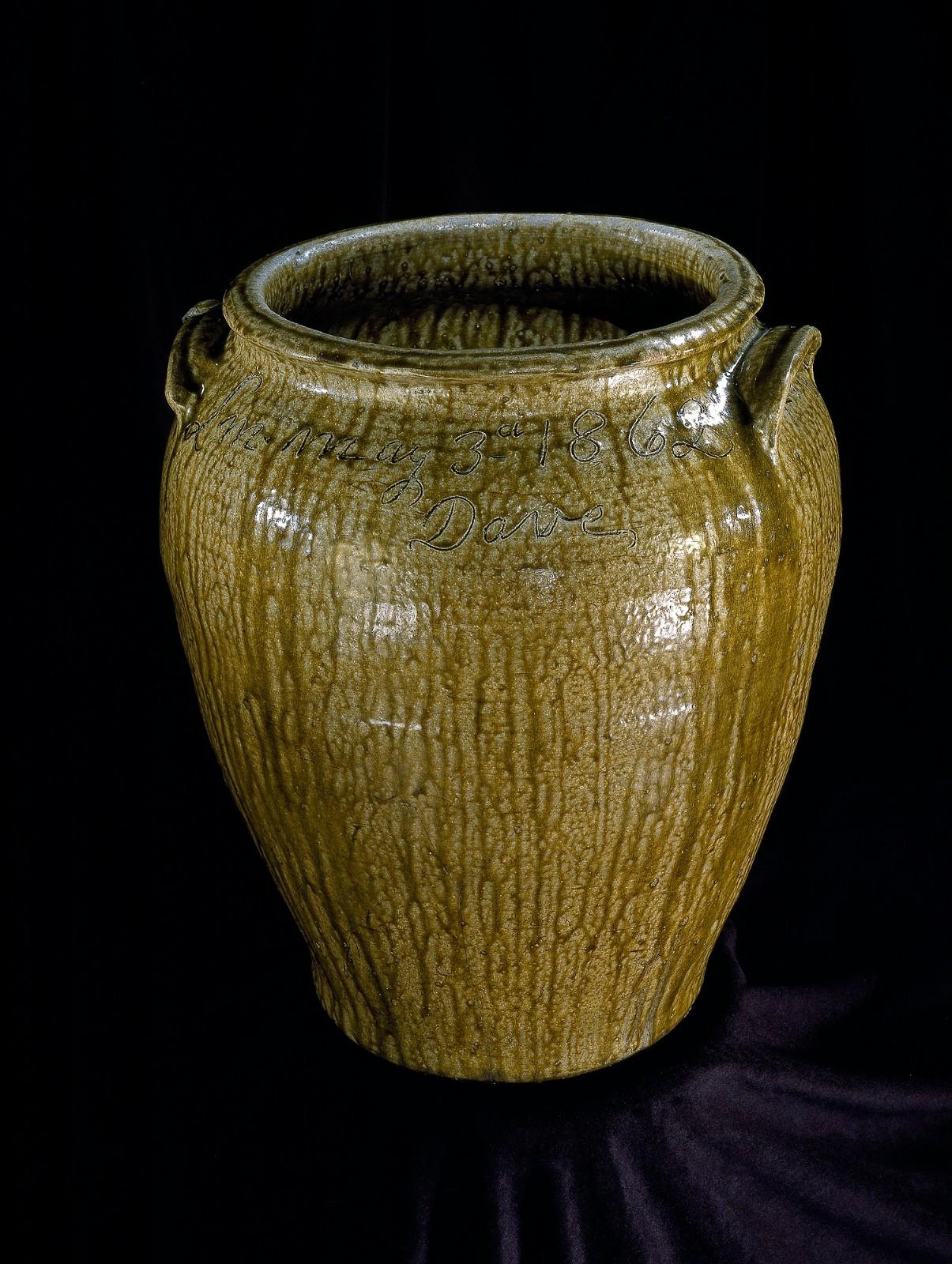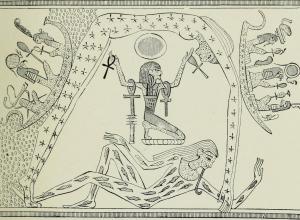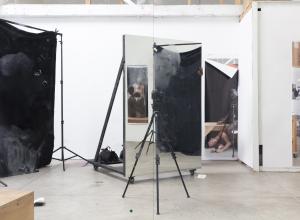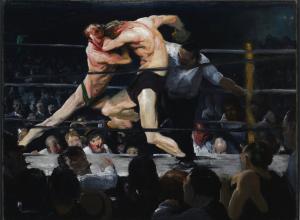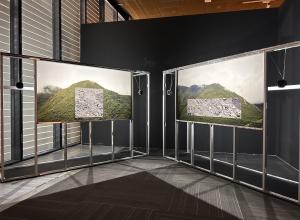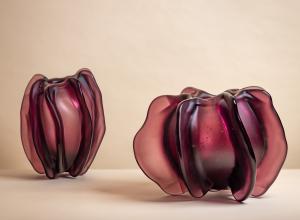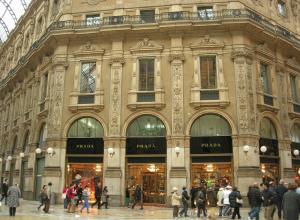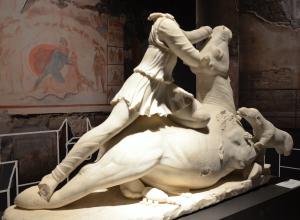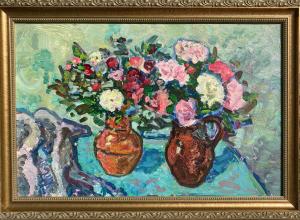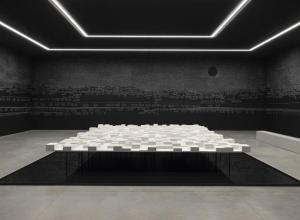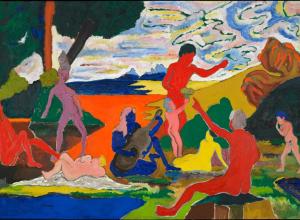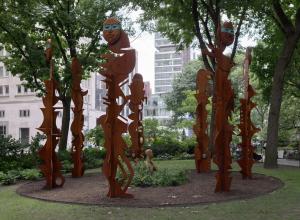Aside from their physical impressiveness, Dave the Slave’s works stand out because he not only signed his works but inscribed some forty known jars with poems: brief rhyming couplets that often reference the bible. A jar the Museum of Fine Arts, Boston, reads, "I made this Jar for Cash- / though its called lucre trash." At a time when slaves were not allowed a sense of identity or ownership of their own bodies and its labors, Drake boldly made his works his own, and marked them as such.
Born into slavery on a North Carolina plantation around 1801, Drake spent most of his life in the Edgefield, South Carolina region known as Pottersville. His owner ran a plantation factory specializing in alkaline glaze stoneware, where Drake learned to work with clay early in life. At this time, teaching a slave to read was illegal, and it is speculated that Drake learned to read and write by working as a typesetter at The Edgefield Hive, the local newspaper which another one of his owners ran. Throughout his life, Drake was moved to several different Pottersville factories by his various owners until his emancipation at the end of the Civil War.




